Delayed or cancelled flight? Bumped? Lost or damaged luggage? Here’s a summary of your rights on U.S. flights.
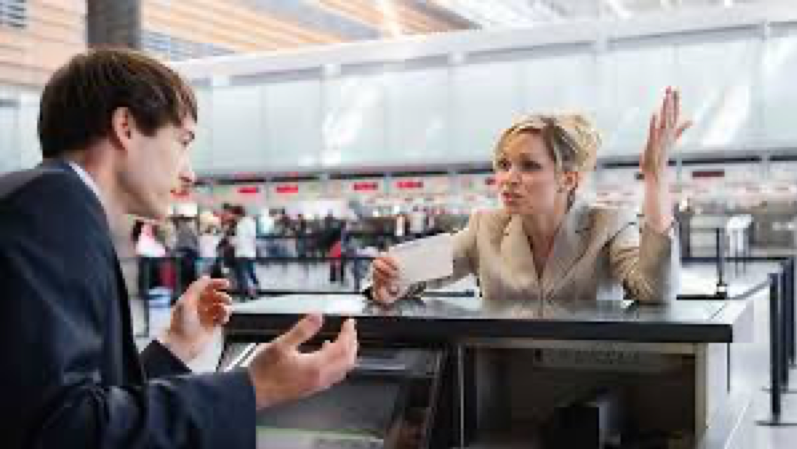
The Montreal Convention of 1999 (which went into effect in 2003—I know) is a treaty among the vast majority of countries and their airlines that establishes airline liability in the case of death or injury to passengers as well as cases of flight delay, cancellations, denied boarding, or loss of baggage and cargo.
The treaty doesn’t address compensation for other types of losses you may incur while flying; for example, damaged baggage or the cost of a hotel stay when an airline cancels a flight. Airline operations within the U.S. are covered by the Department of Transportation (DOT). You can find its complete list of passenger rights here. Per these regulations, passengers have a right to compensation in these situations:
- Delayed and cancelled flights
- Overbooking
- Baggage damage, delays, and loss
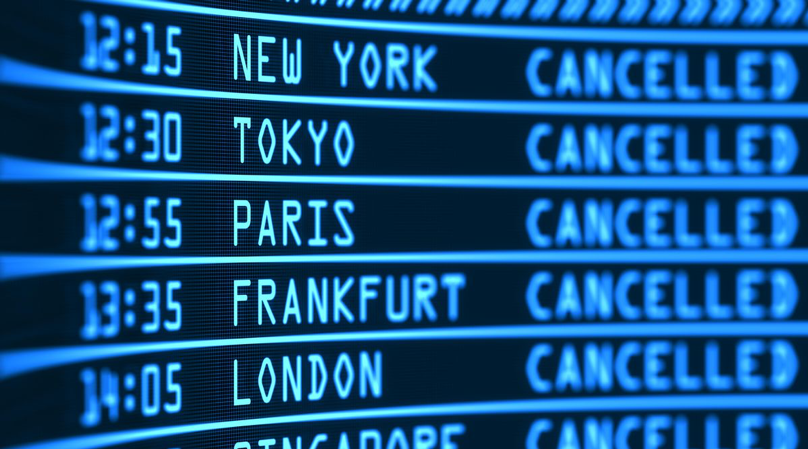
- Delayed And Cancelled Flights
If the reason for a flight delay or cancellation is beyond the airline’s control, it’s not required to compensate you. Weather, air traffic delays, air traffic control directions, and mechanical issues are considered unpredictable and beyond the airline’s control and thus not subject to compensation.
If your flight is cancelled, the airline should rebook you on its next flight with available seats. They should do this without charging you for it. If the “next available flight” is a flight on another airline, ask the airline to book you onto it, understanding it’s not mandatory it do so.
Similarly, in the case of a flight delay, you can ask to be put on another airline’s flight, but the airline isn’t required to do this. In fact, there is no federal rule applying to delays. Instead, each airline sets its own policies, which means you should read and/or download their terms. If you haven’t and are caught by a delay or cancellation, ask an agent for a copy of the policy. While agents can go above and beyond in accommodating you, being prepared by knowing what the airline will do at a minimum always helps. (And be nice when asking! Remember what your grandma told you about flies and honey.)
If you lose money (for example, what you paid for a connecting flight on another airline) or incur expenses (for example, hotel because of a forced overnight, meal during long delay) because of a delay or cancelation, file a claim for reimbursement with the airline. If the delay or cancellation was within the airline’s control (for example, the crew timed out), you should be reimbursed.
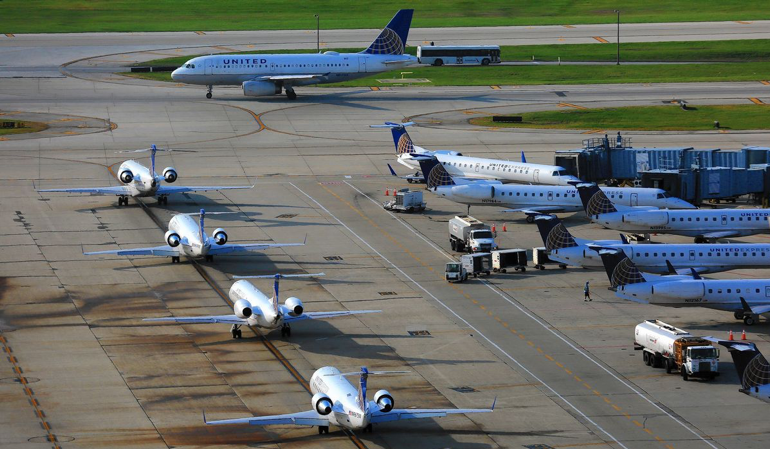
- Tarmac Delays
Tarmac delays refer to delays before take-off and after landing, when the airplane is waiting on the tarmac or near the runway. DOT policy prohibits U.S. airlines from waiting on the tarmac for more than 3 hours, unless one of the following situations occurs:
- the pilot determines a safety or security risk prohibits the aircraft from going to the gate/letting passengers deplane
- air traffic control determines allowing the plane to go to the gate or another area to let passengers deplane would cause significant interruptions to the airport’s operations
These DOT rules do not apply to international flights departing from the U.S. In those situations, the airline’s policies control.
Tarmac delays are not entitled to compensation. However, the DOT has mandated an airline must provide food and water no later than two hours into a tarmac delay on flights (domestic and international) departing U.S. airports. The airline must also make the lavatories available to passengers as well as medical attention, if needed.
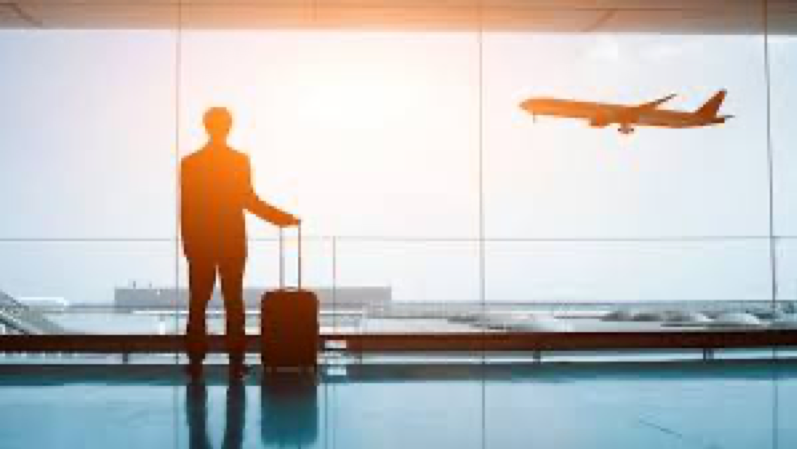
- Overbooking
Overbooking is an airline practice, the aim of which is to fill every seat on a flight. An airline will estimate the number of passengers who show for the flight and then sell that many additional seats. If the number of ticketed passengers who show up exceeds the number of available seats, the flight is overbooked, and passengers must be “bumped.”
Bumping can be voluntary (the airline asks passengers to give up their seats in exchange for compensation and booking on a later flight) or involuntary (the airline refuses to board a passenger, and the passenger receives compensation).
A note on voluntary bumping: be sure you know what you’re accepting as compensation. When is the next flight (the one they’ll rebook you on)? What will the airline provide you while you wait (meals, a hotel room, transportation, passes to the airline lounge, etc.)? Be sure any costs you may incur are covered. There’s no rule on what the airlines may offer you, so don’t let the an agent low-ball you. Agents can negotiate, and the compensation they offer will increase the closer it is to take-off time. (I’ve seen a bumping offer go from $300 to $2500 in the space of fifteen minutes.) If you accept an offer in lieu of cash, be sure you understand any restrictions (for example, when does the voucher expire?).
If you are bumped against your will, then DOT rules apply. How much the airline must give you depends on the cost of your ticket and the length of the delay:
- If you arrive at your destination within one hour of your original scheduled arrival time, you are not entitled to compensation.
- If you arrive at your destination between 1-2 hours after your original arrival time, your compensation will be 200% of your one-way ticket price, with a $675 maximum.
- If you arrive at your domestic destination 2+ hours later than your original arrival time or your international destination 4+ hours later than your original arrival time, or if the airline does not make substitute travel arrangements for you, you are entitled to 400% of your one-way ticket price, with a $1,350 maximum.
Compensation must be in cash or check–not a voucher. If your trip is an award flight or was bought through an agency, you will receive the price of your same fare class for your flight.
If you reject the airline’s rebooking flight and choose to book your own, you will be compensated for the price of the ticket you purchased. If you paid additional fees for extras (seats, checked bags, Wi-Fi, priority boarding, etc.) and you do not receive those services on your rebooked flight OR had to pay for those services again, you will be compensated for the price of those services.
Note: There are limitations and exceptions to the bumping compensation rules. You won’t receive compensation if you:
- Do not have a confirmed reservation.
- Miss the check-in deadline.
- Booked a chartered flight.
- Booked a flight with fewer than 30 seats.
- Booked a flight with 30-60 seats and you are bumped because of safety issues relating to aircraft weight or balance constraints.
- Are on a flight where your plane is switched out by the airline for a smaller one.
- Booked an international flight inbound to the U.S.
If you are bumped and end up out-of-pocket more money than you were offered at the time of the bumping, file a claim with the airline or contact the airline’s customer service department with a request for reimbursement. If the airline won’t cover your additional costs, you can take it to small claims court.
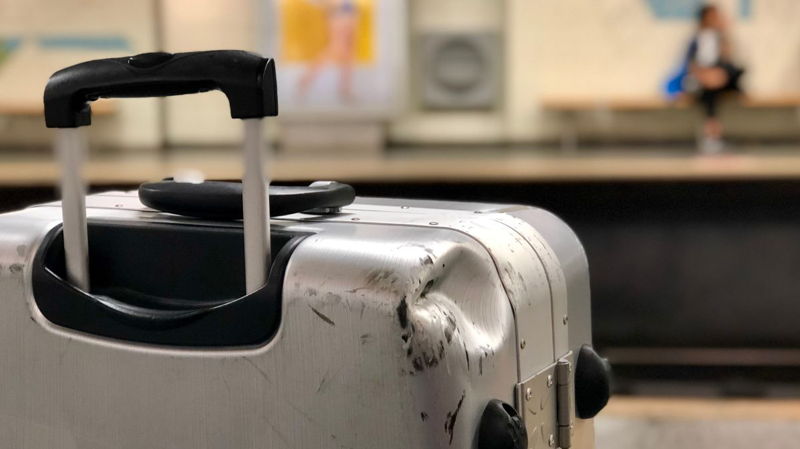
- Baggage Damage, Delays, And Loss
You are entitled to compensation (cost of repair) if your baggage is crushed or torn. If your bag can’t be repaired, the airline will pay you the depreciated value of your luggage (the current value of the bag). If items inside your bag are damaged, the airline may be liable for those damages, too.
If your luggage doesn’t arrive with your flight, you could receive compensation as follows:
- If your luggage is delayed and you incur expenses, you’ll have to negotiate with the airline to cover “reasonable expenses.”
- If the airline doesn’t provide you with a cash advance, it may still reimburse you later for necessary items.
- If sporting equipment is delayed, the airline may pay for the rental of replacement equipment.
- If clothing or other articles are delayed, the airline may cover a portion of the cost for purchasing new items while you wait. (Most airlines have policies on how airport employees can compensate you for emergency purchases.)
- If food or perishable goods are ruined as a result of your luggage being delayed, the airline will not reimburse you.
There are limits to payouts if the airline is found liable for damages: $3,500 per passenger on domestic flights and $1,675 for international round-trip flights originating in the U.S.
If your luggage is lost, be sure to submit a claim before leaving the airport. If your trip involved more than one airline, usually the last one you were on is responsible for your lost bags. The airline will review your claim and estimate the value of what was lost. (You aren’t entitled to original price or replacement cost, but depreciated value, as determined by the airline.) The airline may offer you a free airline ticket in an amount greater than the cash payment. And it usually takes one to three months for payment to arrive.
Twist’s Take: Know your rights! The DOT and airline policies entitle you to compensation in the event of flight delay, bumping, baggage loss, and other situations.
